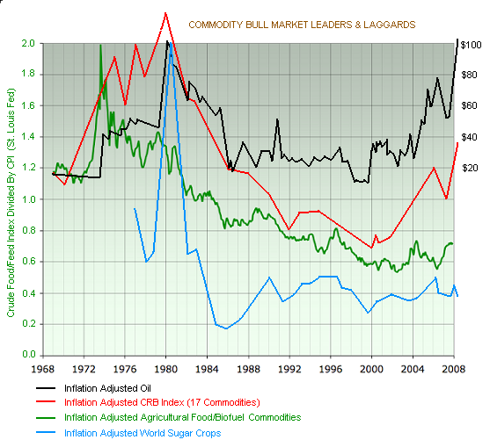It is part of a seismic shift in valuing real assets over paper as is the case with commodities in general. But with food, there is much more too it than that. There is a food shortage developing that may wind up being more severe than say oil supply. A rapidly upgrading and very large BRIC population is placing a strain on global food production. They estimate total food production will have to rise by 70% over the next 40 years. That means $44 billion/year will have to be spent on Agriculture to produce that growth rate vs only $7.9 billion/year now.
This food shortage problem began to show itself in 2007 running crop prices and fertilizer stocks to the moon - and then back to earth with the whacking of the Great Recession. These investments have pretty much remained whacked this year, lagging about everything else, but they are reigniting. They have the potential to be some of the more explosive climbers available very soon, especially considering the historic droughts afflicting the chief food growing regions of the world right now. It is looking like global food production could be down 20% or more because of this pinch.
The food shortage is compounded with the currency debasement problems around the world. Nations will probably want to exchange devaluing paper bills more urgently for edible hard assets than for inedible ones.
Food crop shortage is also compounded with the oil shortage because fuel crops such as sugar (60% of the world's ethanol) compete with meal crops. Inflation adjusted, crops have severely lagged other commodities as this historical chart shows: (click to enlarge)

Using the heights achieved during the previous commodity bull market as an inflation adjusted reference, you can see that crops have of lot catching up to do. Be a farmer!




No comments:
Post a Comment